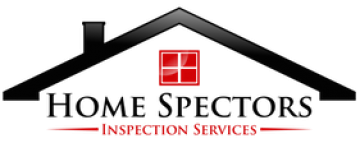Top 5 Signs Your Home Needs a Professional Mold Inspection
Top 5 Signs Your Home Needs a Professional Mold Inspection
Mold is more than just an unsightly nuisance—it can be a serious health hazard and a sign of underlying moisture issues in your home. Unfortunately, mold can grow in hidden areas like behind walls, under carpets, or inside HVAC systems, making it difficult to detect without a professional inspection. If you suspect mold may be present in your home, here are five telltale signs that it’s time to schedule a professional mold inspection.
1. Persistent Musty Odor
One of the most common signs of hidden mold is a persistent musty or earthy smell, especially in damp areas like basements, bathrooms, or crawl spaces. Even if you can’t see mold, an ongoing unpleasant odor could indicate mold growth in unseen areas, such as behind walls or under flooring.
What to Do: If you notice a musty smell that lingers despite cleaning and airing out the space, it’s time to call a professional mold inspector. They can use specialized equipment to locate mold that might not be visible.
2. Allergy or Respiratory Symptoms
Exposure to mold can trigger a range of health issues, particularly in individuals with asthma, allergies, or weakened immune systems. Symptoms include:
•Sneezing or coughing
•Runny nose or nasal congestion
•Watery eyes
•Itchy skin
•Worsened asthma symptoms
If you or your family members experience these symptoms when at home but notice improvement when away, mold could be the cause.
What to Do: If you’re noticing unexplained allergy or respiratory issues, especially in a certain area of your home, a mold inspection can confirm whether mold is present and affecting your indoor air quality.
3. Visible Mold Growth
This may seem like an obvious sign, but many homeowners overlook small patches of mold, assuming they can easily clean it themselves. However, visible mold—even in small amounts—can indicate a much larger issue lurking below the surface. Mold often grows in areas with excess moisture, and simply cleaning the visible growth may not address the root cause.
Common places for visible mold include:
•Around windows where condensation collects
•On walls or ceilings in bathrooms with poor ventilation
•Around pipes and plumbing fixtures
What to Do: Don’t ignore visible mold, even if it seems minor. Schedule a professional inspection to determine if there’s a deeper issue and to ensure proper remediation.
4. Recent Water Damage or Flooding
Mold thrives in moist environments, and areas that have recently experienced water damage or flooding are especially prone to mold growth. Whether it’s from a leaky roof, a burst pipe, or a flooded basement, any area that’s been exposed to excess moisture is at risk.
Even if the water damage appears to be fully dried, moisture can become trapped in walls, floors, and insulation, creating an ideal environment for mold to grow.
What to Do: If your home has recently suffered water damage, it’s wise to get a mold inspection to ensure that no mold has started to grow. This can save you from more significant problems down the line.
5. Discoloration on Walls, Ceilings, or Floors
Mold often causes discoloration on walls, ceilings, or floors, particularly in areas with high humidity or poor ventilation. These stains may appear green, black, or brown and are often mistaken for dirt or water damage. In some cases, bubbling or peeling paint can also indicate mold behind the surface.
What to Do: Don’t assume that discoloration is simply cosmetic. If you notice any unusual spots or stains that won’t go away with cleaning, have a professional inspect the area to rule out mold.
Why You Need a Professional Mold Inspection
While some minor mold issues can be addressed with DIY solutions, larger infestations require the expertise of a professional mold inspector. Mold can spread quickly, and improper cleaning techniques can release spores into the air, worsening the problem. A professional mold inspector will:
•Conduct a thorough assessment using moisture meters and infrared cameras
•Test for mold spores in the air
•Identify the source of moisture feeding the mold growth
•Recommend the best course of action for remediation
At HomeSpectors, our team of certified mold inspectors uses state-of-the-art equipment to ensure your home is safe and mold-free. Don’t wait until a small mold problem becomes a serious health concern—contact us today to schedule your professional mold inspection.
